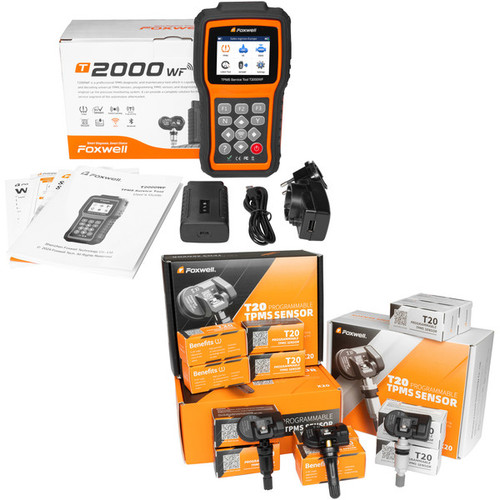Which TPMS Sensors to Buy: Good, Better, Best
If you’re shopping for TPMS (Tire Pressure Monitoring System) sensors, you’ve probably noticed there’s a lot of choice out there. From low-cost generic options to premium OEM-grade sensors, it can be tough to know which one is right for your needs.
Here’s a quick breakdown to help you decide—with a focus on options we’ve tested and trust.
Good: Off-Brand Budget Universal TPMS Sensors
If you’re just looking to replace a sensor or two without spending a lot, universal TPMS sensors are a good place to start. These are designed to be programmable across a wide range of vehicles, and they work well in most standard driving conditions. These come from a variety of brands you likely don’t recognize.
Pros:
- Affordable
- Easy to find on sites like Amazon and eBay
Cons:
- May not be able to properly communicate with the given vehicle
- Can arrive with low or dead batteries, meaning you might end up having to replace them again
- Universal sensors tend to have poor build quality
Example:
Off-brand universal sensors like this one found online. Just make sure to check vehicle compatibility carefully before purchasing.
Better: Programmable Sensors from Trusted Brands
This is where quality and value start to meet. Programmable sensors from reputable manufacturers like Foxwell, Autel, or XTool offer much better performance, more consistent compatibility, and strong support for newer vehicles.
Pros:
- Reliable, with good vehicle coverage
- High build quality
- Backed by a reputable brand
- Often compatible with OEM relearn procedures
Cons:
- Slightly higher price than off-brand sensors
- Still requires a TPMS programming tool
Example:
Foxwell T2000WF + T20 Sensors – a great all-around sensor that works with most vehicles and can be easily programmed with the T2000F TPMS tool. In our testing we found that Foxwell matched up well against Autel’s MX series and is therefore a good value option.
Best: OEM or OEM-Equivalent Sensors
For the best performance, especially in vehicles that are sensitive to TPMS specs, OEM or OEM-equivalent sensors are your best bet. These offer the most precise readings and smoothest integration with your vehicle’s onboard systems.
Pros:
- Exact match for your vehicle
- Minimal hassle with relearn or programming
- Maximum reliability
Cons:
- More expensive
- OEM sensors can be out of stock or have long lead times, especially for older or less common vehicles
Example:
Genuine OEM sensors from the vehicle manufacturer or high-quality equivalents made by top-tier brands.
Final Thoughts
If you’re doing a quick replacement and price is the biggest factor, a universal sensor might do the job. But if you want something reliable, programmable, and backed by a brand you can trust, Foxwell TPMS sensors are a solid middle ground—and one we personally recommend and sell based on our testing. It stacked up well against known aftermarket brands such as Autel.
Need help choosing the right sensor for your vehicle? Reach out to us—we’re happy to match you with the best option for your car and budget.

